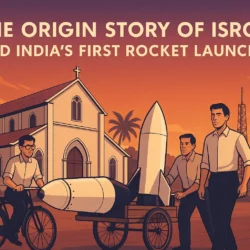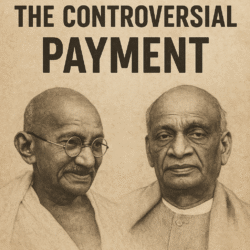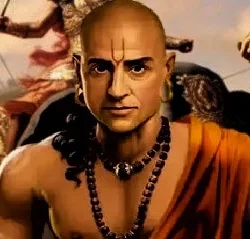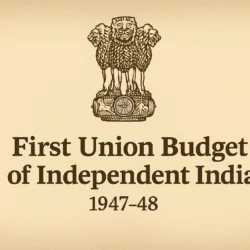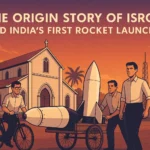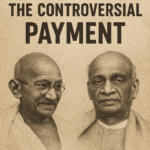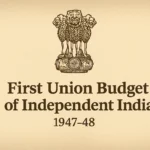Introduction
India-Israel Relations have transformed rapidly since the formal establishment of diplomatic ties in 1992. The relationship gained unprecedented momentum with the upgrade to a Strategic Partnership in 2017.
Both nations share deep cultural and historical ties, democratic values, and a forward-looking agenda. Consequently, the partnership today spans political engagement, defense, trade, scientific innovation, agriculture, water technology, and vibrant people-to-people bonds.
The Political Foundation: High-Level Engagement
High-level engagement is central to the India-Israel partnership. Prime Minister Modi’s historic 2017 visit to Israel, the first by an Indian PM, marked a decisive shift, followed by Prime Minister Netanyahu’s visit in 2018, further solidifying ties.
In 2023–2024, leaders from both sides maintained regular communication.
PM Modi and PM Netanyahu held multiple phone calls in January, February, August, October, and December 2023, followed by another call in June 2024. These conversations covered regional security, bilateral cooperation, and maritime safety.
Prime Minister Modi also met with Israel’s President Isaac Herzog on the sidelines of COP28 in Dubai.
Meanwhile, parliamentary diplomacy accelerated. The Speaker of the Knesset, Amir Ohana, visited India in March–April 2023, marking the first-ever such visit. He also signed an MoU on Parliamentary Cooperation with India’s Lok Sabha Speaker.
Several ministerial engagements strengthened the ties further. Key visits included:
- Israeli Foreign Minister Eli Cohen (May 2023)
- Israeli Economy & Industry Minister Nir Barkat (April 2023)
- Israeli Transportation Minister Miri Regev (February 2024)
India’s National Security Advisor Ajit Doval visited Israel in March 2024, reinforcing security cooperation.
Notably, mechanisms like Foreign Office Consultations, UN and multilateral dialogues, and specialized sectoral consultations continue to support sustained political momentum.

A Robust Economic Partnership
Economic cooperation has grown at an extraordinary pace. Bilateral trade between India and Israel increased from USD 200 million in 1992, the year diplomatic relations were formally established, to USD 10.77 billion in the financial year 2022–23, excluding defense-related trade.
In FY 2023–24, trade totaled USD 6.53 billion, with India exporting USD 4.52 billion.
Major Indian Exports to Israel
- Pearls, precious and semi-precious stones
- Automotive diesel and other petroleum products
- Chemical and mineral products
- Machinery and electrical equipment
- Plastics, textiles, and apparel
Major Israeli Exports to India
- Pearls and precious stones (predominantly diamonds)
- High-tech machinery and electrical equipment
- Defense equipment and technology
- Chemical and mineral/fertilizer products
- Sophisticated electronic and communication systems
Investment flows also underscore growing economic synergy.
Indian ODI to Israel reached USD 396 million, while Israeli FDI into India totaled USD 314.87 million (2000–2024).
A landmark event was the Adani-led acquisition of Haifa Port for USD 1.18 billion in 2022 — a strategic move that highlights long-term confidence and connectivity potential.
Strategic Cooperation: Defense & Security
Defense cooperation is central to India-Israel’s strategic partnership. Both countries maintain bilateral consultation mechanisms covering counter-terrorism, defense collaboration, and security research.
High-level defense interactions strengthened ties:
- Defence Minister-level talks (March 2023)
- Visits by Israel’s Defense Minister Benjamin Gantz (2022)
- Visits by India’s Army Chief (2021) and Air Force Chief (2021)
Military engagements further deepened interoperability.
The Indian Air Force participated in Blue Flag 2021, a major multinational air exercise hosted by Israel. Indian Navy ships also made goodwill port calls in Haifa in 2017 and 2018.
Knowledge & Technology Synergy
Science and technology cooperation acts as a major pillar of the partnership. The Joint Committee on S&T, active since 1993, supports joint research, exchanges, and workshops.
In 2022, the tenth JCM launched the India-Israel Joint Research Programme 2023 with a focus on AI applications in climate change and agriculture.
India-Israel Industrial R&D and Innovation Fund (I4F)
Launched during PM Modi’s 2017 visit, the I4F fund supports collaborative innovation with USD 20 million committed from each side for 2018–2022.
It was renewed for 2023–2027, covering:
- Feasibility studies
- R&D projects
- Pilot projects
- Strategic projects
So far, 30 joint projects have been funded, including:
- Drone detection and neutralisation systems
- Low-cost, high-efficiency solar water pumps
- AI-based tuberculosis detection technology
Innovation Platforms
Israel’s Startup Nation Central and India’s iCREATE established a bilateral innovation program in 2020. In 2023, an MoU expanded cooperation between Israel’s Defense Research Directorate and India’s CSIR.
Agriculture Cooperation
Under the bilateral agriculture work plan, 31 Centers of Excellence have been established across 13 states, delivering Israeli know-how to Indian farmers.
Water Technology
Water cooperation is formalized through a 2016 MoU and subsequent agreements, including:
- National Campaign for Water Conservation
- Reform of UP Jal Nigam
- Mekorot’s water management plan for Punjab
- New Centers of Excellence at IIT Madras and IIT Roorkee (2023)
The I2U2 Group: A New Multilateral Framework
The I2U2 Group — India, Israel, the UAE, and the US — marks a bold new mini-lateral mechanism in West Asia.
Prime Minister Modi participated in the first I2U2 leaders’ summit in July 2022.
The group focuses on food security, clean energy, and emerging technology, and highlights Israel’s role in India’s broader regional engagement.
The Human Bond: People-to-People Ties
People-related ties bring emotional depth to India-Israel relations.
Israel hosts 26,000 Indian citizens, including caregivers, IT professionals, students, and diamond industry workers.
Around 85,000 Jews of Indian origin live in Israel, tracing their roots to:
- Maharashtra (Bene Israelis)
- Kerala (Cochini Jews)
- Kolkata (Baghdadi Jews)
- Northeast India (Bnei Menashe)
Indian tourism and flight connectivity improved significantly after the launch of Air India’s Delhi–Tel Aviv service in 2018.
Students
Around 900 Indian students study in Israel, mainly in advanced research programs.
Operation Ajay
After the October 7 attacks, India launched Operation Ajay on October 12, 2023, bringing home more than 1,300 Indian nationals through special flights.
The Embassy operated 24-hour control rooms and emergency helplines.
Cultural Links
India and Israel renewed their Cultural Exchange Programme (2020–23).
Yoga and Ayurveda enjoy wide popularity, and the Indian Cultural Centre in Tel Aviv actively promotes cultural outreach. The Know India Programme fosters youth connections among Indian-origin Jews.
Conclusion
India-Israel relations today represent a multi-dimensional, resilient, and future-oriented strategic partnership.
The countries are united by democratic values, economic synergy, technological cooperation, and strong people-to-people ties.
As both countries navigate the challenges of the 21st century, their partnership promises bold innovations, stronger security cooperation, and greater prosperity for their people.



